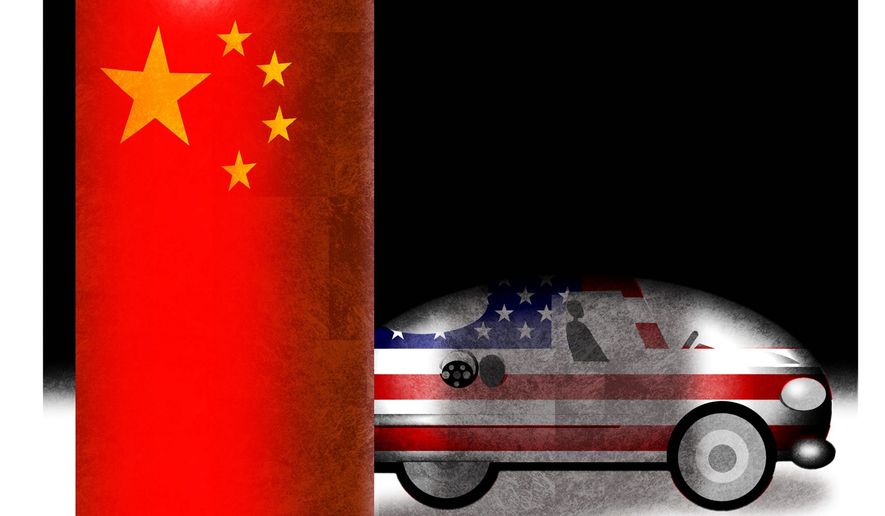OPINION:
The Biden Administration goal of net-zero CO2 emissions by 2050 faces some troubling supply-chain issues, like child labor in the cobalt mines of the Democratic Republic of the Congo and, not to put too fine a point on it, slave labor in China.
One case in point is polysilicon. Polysilicon is one of the basic building blocks for solar panels. And solar panels are the basic building blocks for the part of the net-zero economy, you know, the economy that has no gas cooktops, gas water heaters, Bunsen burners, or gasoline-powered cars. In addition to no gourmet cooking, the net-zero economy gets rid of the gas-fired and coal-fired powerplants that make most of our electricity needed to power the replacement electric cooktops, water heaters, and electric vehicles (who knows what replaces Bunsen burners).
There is a bit of awkwardness regarding the supply of polysilicon. Special Climate Envoy John “private jets are the only choice for somebody like me” Kerry noted that it is a problem that US imports “solar panels that we believe in some cases are being produced by forced labor.” Those pesky human-rights problems kind of mess up the social-justice part of green-new-dealing.
Eighty percent of the world’s supply of polysilicon (needed for solar panels) comes from China. About half of that 80% comes from the northwestern province of Xinjiang, where a million of the local people Uyghurs have been forced into detention camps.
Credible reports indicate that there are also programs to sterilize the Uyghurs. The Chinese say the camps and the forced labor are merely job training.
Fortunately, there is good news. The systematic rape, forced detention, and sterilization issues that are part and parcel of this “job training” need not hinder the United States’ march to net-zero greenhouse gases.
Thanks to the efforts of the environmental/climate warriors, we already have an approach that will allow us to ignore the impact of green slavery totally. In his answer to a reporter’s question of whether flying in a private jet to accept an environmental award was “an environmental way to travel,” Mr. Kerry noted that he uses carbon offsets all the time.
Bingo!
All we need are freedom offsets. Carbon offsets — where rich people pay other people not to emit carbon dioxide – allow rich people to feel better about their effect on the environment.
Freedom offsets would allow slavery in one place for freedom in another, thus ensuring the most efficient distribution and use of slavery.
With freedom offsets, China could continue denying basic human rights so long as they paid somebody else to restore rights to a different group of people. For instance, each year that one Uyghur is forced to work against their will in a Xinjiang factory, China could pay to have a prisoner somewhere else released a year before their parole date. If somebody is released two years before the parole date, China could enslave two people for one year or one person for two years.
Freeing just one person condemned to death or serving a life sentence would free up however many years that person was expected to live. A prisoner serving concurrent sentences could provide double or triple the number of freedom offsets.
It is a market solution to slavery, just like carbon offsets are a market solution to CO2 emissions.
Putting a price on slavery like this would encourage market creativity. Armed gangs could initiate prison breakouts where they overpower guards and release many people at once, thereby avoiding burdensome legal procedures and creating valuable freedom offsets.
Overzealous enforcement and draconian minimum-sentencing laws could provide the critical incarcerated population necessary to fund state and local governments with early-release freedom offsets. Despots and authoritarians could monetize their citizens’ freedom.
If successful, the program could expand well beyond Chinese factories. Perhaps John Kerry will find that enslaving his help is the only way for somebody like him to get stuff done around the house. This will be fine since he can buy freedom offsets.
All we need to do is make a carbon copy of the carbon market.
• Dr. David Kreutzer is a senior economist at the Institute for Energy Research. He taught economics for 23 years at James Madison University and for three years at Ohio University.




Please read our comment policy before commenting.